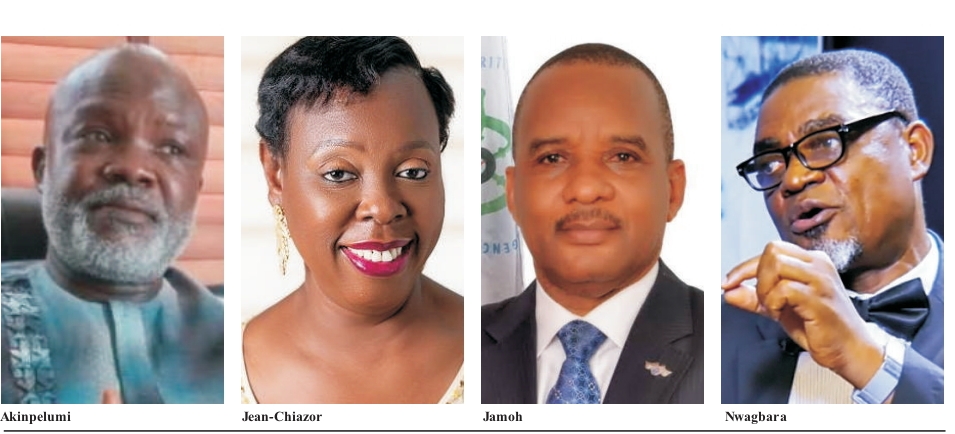Sliding Oil Revenue: OPEC’s Fever, Nigeria’s Malaria
 There is no doubt that crude oil has contributed substantially to Nigeria’s revenue since its discovery in 1956 and more especially, since 1970 when its price was on the upward trend.
There is no doubt that crude oil has contributed substantially to Nigeria’s revenue since its discovery in 1956 and more especially, since 1970 when its price was on the upward trend.
But, the reverse has been the case since 2014 when the price started plummeting and cutting the country’s oil export revenue by half. Undoubtedly, the discovery of crude oil has contributed and assisted Nigeria’s economic prosperity and growth.
Nevertheless, the current dwindling in oil price since June 2014, after five years of oil windfall, has immensely affected the economy of major oil exporters like Nigeria, Saudi Arabia, Iraq and Libya.
In the past two years, the country has been having challenges financing its yearly budget, which has resulted to government’s plans to engage in diversification of the economy.
Already, Nigeria has suffered current account deficit of $15.5 billion (N4.5 trillion) in 2015 compared with a surplus of $1.3 billion it recorded in the previous year. It represents the highest in 27 years.
The value of Nigeria’s petroleum export revenue also declined from $77.5 billion in 2014 to $41.8 billion in 2015.On a wider note, the Organization of the Petroleum Exporting Countries (OPEC) experienced a 46 per cent decline from net oil export revenues in 2015 compared to 2014, according to the U.S. Energy Information Administration.
For 2015, OPEC received roughly $404 billion in net oil exports, down from the $753 billion earned in 2014.By the end of the year, OPEC’s net oil export revenues will total roughly $341 billion. From January to May, OPEC earned roughly $120 billion in net oil export revenues.
On a per capita basis, OPEC net oil export earnings is expected to decline by 17 per cent from 2015 to the full year 2016. The International Energy Administration (IEA) in its report that attributed the decline in OPEC’s net export earnings to lower forecast of yearly crude oil prices in 2016 compared with 2015.“The price declines are expected to more than offset OPEC’s increased production and exports in 2016.”OPEC had lost $349 billion in revenue last year because of low oil prices, cutting revenues almost in half from the year before.
Also, the U.S. Energy Informaiton Administration (EIA) had in mid-June estimated 2015 revenues for OPEC countries at $404 billion, down by 46 per cent from the $753 billion the member countries earned in 2014.
Revenues last year fell to their lowest level in eleven years. Worse still for OPEC is the fact that revenues could fall even further this year, as low oil prices sank to new depths, particularly in the first quarter of 2016.
The EIA projects OPEC revenues this year to drop to $341 billion. The over all export which climbed by an average of 400,000 barrels per day, was largely because of production gains in Iraq and Saudi Arabia.
OPEC is expected to keep production more or less flat – in fact, output has declined in several member countries because of unexpected disruptions (Iraq, Libya, Nigeria, Venezuela). Some output could come back from those countries, but nothing major is expected.
The President, Lagos Chamber of Commerce and Industry (LCCI) Dr. Nike Akande, urged the Federal Government to fast track its efforts on the nation’s economic diversification agenda.
Akande called on the government to enthrone a new regime of business-friendly environment in the country to promote economic activities on a sustainable basis, stressing that the nation’s business environment has been experiencing some challenges, which have impacted negatively on business performance in the country.
She therefore advised the government to liberalise the downstream oil sector and exploit diversified energy sources, adopt a flexible exchange rate regime and evolve a business-friendly monetary policy, urging the federal government to reform the budget process for timely passage and liaise effectively with the legislators to ensure that various pending bills are expeditiously attended to on time.
Meanwhile,t he nation’s external reserves fell marginally to $26.33bn on June 29, down 0.30 per cent from a month ago, the Central Bank of Nigeria data showed on Thursday , last week.
The foreign exchange reserves stood at $26.42bn on May 27, down by 9.2 per cent year-to-year.
The reserves had stood on the $26.4bn mark between May 24 and 27, after dropping to $26.5bn from $26.6bn same month.
Between May 31 and June 7, the external reserves stood at the $26.3bn mark, before rising back to the $26.4bn mark on June 8, a level it maintained till June 24. On June 27, it fell back to $26.36bn.
The CBN had two weeks ago lifted its 16-month-old currency controls and auctioned about $4bn in the spot and futures market to clear a backlog of dollar demand, to help boost interbank market trading.
The central bank has sold $7m at 283 naira to the dollar on the interbank currency market on Thursday, one trader at a major commercial bank told Reuters.
Traders said the local units of ExxonMobil, Chevron, Eni and Addax sold a combined $37.2 million through commercial banks for import of petroleum product to the country.
The interbank market traded a total of $60m volumes by 1256 GMT, with the naira quoted at 283 to the dollar.
The external reserves had fallen month-on-month by 2.65 per cent from $27.15bn to $26.42bn on May 27.
The reserves have dropped by over 10 per cent from last year when they were at $29.7bn.
The global plunge in oil prices has caused the reserves to be depleting very fast. The development has forced the CBN to introduce foreign exchange controls, which were abandoned some weeks ago.
The CBN’s Monetary Policy Committee announced plans to adopt a flexible exchange rate policy after the external reserves fell to $26.56bn on May 23.
The external reserves have lost over $2bn dollar this year.
The nation recorded a balance of payments deficit of 1.4 per cent in its Gross Domestic Product at the end of 2015, owing largely to its first current account deficit (three per cent of the GDP) in over a decade.
Analysts said the CBN’s decision not to devalue the naira had led to the sharp drop in the external reserves.
But they lauded the MPC’s plan to adopt a flexible exchange rate policy, noting that the move would help to boost forex inflow into the country.
The nation’s external reserves had reduced by $6.7bn within a period of 21 months, the Minister of Budget and National Planning, Senator Udo Udoma, said on March 23.







